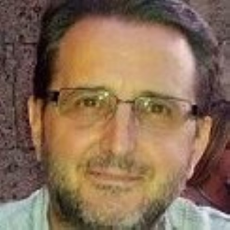Objectives
The aim of the nanosystems module is to provide students with the necessary information for a critical knowledge of the principles and applications of nanotechnologies ranging from the creation and modification of nanostructured material, to kinetics, electrochemistry and the principles of plasmon resonance, together with the knowledge acquired in other lessons such as biochemistry, organic chemistry and pharmacology will be the basis for the realization of miniaturized devices based on bio-nanotechnologies applied to resolutions of problems in the food, clinical and ecotoxicological fields.
KNOWLEDGE AND UNDERSTANDING:
• to know the principles that underlie nanotechnology with particular regard to modification and functionalization;
• to know the principles underlying the measurement techniques applied for the realization of the nanodevices;
• to understand the potentiality of nanostructured modified biosensors and their use in real matrices analysis in several fields of interest in particular; food, clinical, pharmaceutical and environmental.
APPLYING KNOWLEDGE AND UNDERSTANDING:
• to understand the different theoretical-experimental approaches for the resolution of properties inherent in the use of nanomaterials in diagnostics in general and biosensors in particular.
MAKING JUDGMENTS:
• to be able to develop their critical sense following stimuli coming from the teacher:
• to be able to connect the topics studied thanks to the multidisciplinary nature of the course by integrating what has been studied in the course with the already acquired knowledge of the chemical and biological type.
LEARNING SKILLS:
• to be able to describe scientific topics related to real systems using in a critical way the methodologies and techniques covered in the course.
COMMUNICATION SKILLS:
• to be able to discuss scientific topics related to nanotechnologies and measuring devices and apply them to real processes.
Channels
NESSUNA CANALIZZAZIONE
 FRANCO MAZZEI Teacher profile
FRANCO MAZZEI Teacher profile
Programme
Program
Introduction to nanotechnologies: definition of nanotechnologies; main characteristics of nanomaterials; types of nanostructures; nanocomposite materials; main chemico-physical properties of nanomaterials.
Methods for the characterization of nanomaterials: Atomic force microscopy (AFM), scanning electron microscopy (SEM), transmission electron microscopy (TEM), and other superficial analysis techniques. Self-assembly of nanostructures and examples of nanotechnology applications.
Introduction to biosensors: Definition of biosensors; main elements of biosensors; parameters used to characterize the performance of the sensors: accuracy, precision, sensitivity, detection limit, selectivity, linearity, response time, lifetime.
Metallic nanoparticles-based biosensors: Definition of nanoparticles; characteristics of nanoparticles; and synthesis of nanoparticles: electrochemical, chemical and "green" approach.
Quantum Dot-based biosensors: Definition of quantum dots; manufacturing techniques; macroscopic and microscopic photoluminescence measurements; their application in the realization of biosensors.
Biosensors based on carbon and graphene nanotubes: definition of the main properties and synthesis of carbon nanotubes and graphene and its derivatives; manufacture and operating principles of biosensors based on carbon nanotubes and graphene and its derivatives.
Biosensors based on nanocomposite materials: Synthesis of nanocomposite polymers / nanostructured materials structures; characteristics and applications in the field of sensors and for the development of "biofuel cells".
Adopted texts
A specific text is not required, articles will be provided to deepen the topics covered as well as it will be possible to download the complete slides of the lessons on the teacher's website.
Prerequisites
We recommend that you have taken the following first-year exams: Physical-Chemistry and Biochemistry, which represent the basis for understanding the Course topics.
Exam modes
The assessment methods of the course are characterized by an oral exam call fixed each month of the year, excluding the months of August and December. The exam is open for 15-20 days to give students the opportunity to choose the most appropriate date to take the exam. The vote is expressed in thirtieths, with possible praise. Passing the exam presupposes the conferment of a grade of not less than eighteen / thirty and involves the assignment of the corresponding university credits. In the evaluation of the tests for the purpose of the assignment of the final grade, the following will be taken into account: the level of knowledge of the demonstrated contents (superficial, appropriate, precise and complete, complete and in-depth), the ability to apply the theoretical concepts (errors in applying the concepts, discrete, good, well established), the capacity for analysis, synthesis and interdisciplinary links (sufficient, good, excellent), the capacity for critical sense and the formulation of judgments (sufficient, good, excellent), the mastery of expression (deficient, simple, clear and correct, safe and correct). In general, we start from very general questions about the main concepts of the Course followed by more specific and more detailed questions about the application of the principles studied to describe real phenomena. To pass the exam, the mnemonic study is not recommended, but the understanding of the main concepts is required in a preponderant manner. At the end of the course, scientific papers will be provided on the various topics of the topic that will be the basis for discussion of the exam. In general, it starts from very general questions on the main concepts on biosensors and nanotechnologies followed by more specific in-depth questions of increasing complexity concerning the application of the principles studied to describe real phenomena. The ability to connect and compare the topics held in different parts of the course and/or in other courses is particularly appreciated. Numerical examples may also be processed during the test.
- Academic year: 2019/2020
- Curriculum: Curriculum unico
- Year: Fourth year
- Semester: First semester
- Parent course:
1052279 - NANOSYSTEMS FOR THE DIAGNOSIS AND THE PHARMACEUTICAL TECHNOLOGY - SSD: CHIM/02
- CFU: 4
- Attività formative affini ed integrative
- Ambito disciplinare: Attività formative affini o integrative
- Lecture (Hours): 32
- CFU: 4.00
- SSD: CHIM/02
